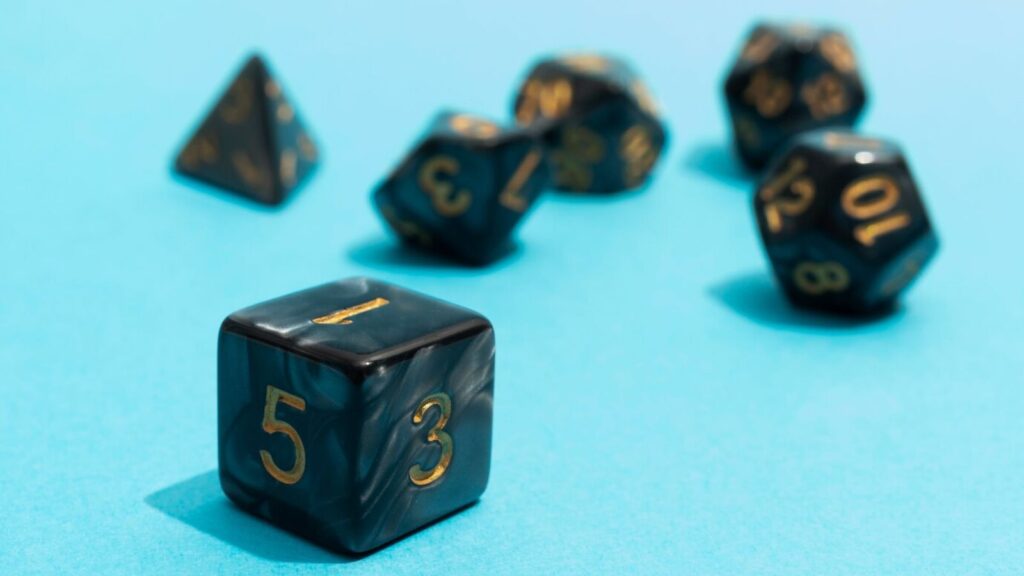
If you want to optimize your gaming strategy you need to understand probability. Whether it’s board games, card games or online casino setting probability plays a huge role. Knowing the odds helps you make informed decisions and win more. From rolling dice to drawing cards probability effects everything in the game. By applying probability to your strategy, you can maximize your chances of success while minimizing the risk.
The Fundamentals Of Probability In Gaming
Probability is the mathematical study of how likely an event is to happen. In gaming this means measuring the likelihood of drawing a specific card, rolling a certain number or encountering a certain scenario. Probabilities are expressed as fractions, decimals or percentages. For example, in a 6 sided die the probability of rolling a specific number (like a 4) is 1/6 or 16.67%.
Once you know the odds you can make better decisions – like risk vs reward in a gaming situation.
Fundamental Principles of Probability in Gaming:
- Randomness and Fairness – Many games rely on randomness to ensure fairness and unpredictability.
- Independent vs. Dependent Events – Independent events are not influenced by previous outcomes (e.g., rolling a die multiple times does not affect future rolls). Dependent events, however, are influenced by prior actions (e.g., drawing a card from a deck reduces the number of remaining cards).
- Expected Value (EV) – The predicted average outcome over time, which helps in making strategic decisions.

How Probability Influences Strategy
Mastering probability allows you to build strategies based on logic rather than gut feelings. Here’s how probability plays a role in different types of games:
- Card Games
In games like poker, blackjack, and rummy, probability helps players decide their best move. For instance, in poker, knowing the odds of completing a flush or a straight can determine whether you should keep betting or fold. In blackjack, calculating the likelihood of drawing a favorable card can help you decide whether to hit or stand.
- Dice Games
Players must evaluate the probabilities of rolling specific numbers in dice games, like craps or backgammon. Knowledgeable players in backgammon will consider the probability of rolling a specific number when planning their piece movements. Understanding the most likely outcomes on the dice will allow for a better plan of attack.
- Board Games
Many (strategy-based) board games, like Risk or Settlers of Catan, have some probabilities implicated in them. Players must understand the possible chances of succeeding in their attacks, generating resources, or moving according to the rolls. Using probability to predict results relies on calculation that leads to better options and choices while creating a more robust overall strategy.
- Video Games
Modern video games also integrate probability into their mechanics. Whether its loot drops, item effectiveness, potion success rates, or in-game rewards, probability plays a hidden but vital role. Competitive gamers often analyze these odds to optimize their strategies and improve performance.

Common Mistakes In Probability-Based Decision-Making
Even experienced players sometimes misunderstand probability, leading to costly mistakes:
- The Gambler’s Fallacy – Believing that past outcomes influence future results (e.g., thinking a dice roll is “due” to land on a certain number).
- Overestimating Rare Events – Focusing too much on low-probability outcomes and making decisions based on unlikely scenarios.
- Misusing Expected Value (EV) – Some players chase short-term wins rather than considering the long-term probabilities of their choices.
- Ignoring the Role of Luck – While probability helps improve strategy, gaming always involves an element of luck. Even the best strategies can’t eliminate randomness entirely.
Final Thoughts: Play Smarter With Probability
Whether you’re playing poker, rolling dice, or strategizing in a board game, probability is your secret weapon for making smarter decisions. Understanding the odds won’t guarantee a win every time, but it will help you make more informed choices, giving you an edge over players who rely on pure instinct. So next time you sit down for a game, take a moment to think about the numbers—it might just be the key to your next big win!












